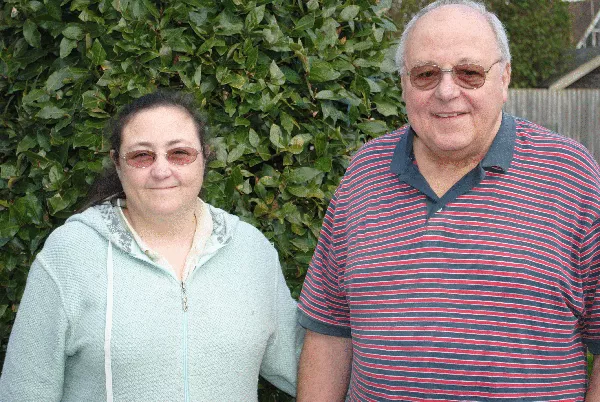Where it all started

It was 1980 and my wife and I had arranged a camping holiday during half-term at the end of May so we were driving to Cambridge. On the way there our daughter, Alison, who was nine, was constantly asking for a drink or wanting a toilet and this continued during our first night in the tent.
The following morning things still hadn’t improved and we realised something was very wrong so we drove immediately to Addenbrooke’s Hospital where she was diagnosed with Type 1 diabetes. The doctor did say that if we had left it much longer she would have gone into a diabetic coma.
We were shattered by the diagnosis
After a couple of days in hospital we were allowed to take her back to Wycombe General Hospital for her ongoing care. At the time I think it is fair to say that we were shattered by Alison’s diagnosis of Type 1 as we had had no experience of diabetes in either of our families at that time. Since then, several members of my family have been diagnosed with Type 2 diabetes and I have been told that I am at borderline risk of developing Type 2.
After Alison’s diagnosis we had to notify the school and they were mostly supportive although one or two teachers were very reluctant to comprehend her condition or get involved. Alison had to go through the process of doing her own insulin injections, which she did not like, but if she wanted to go on school trips with her friends it was explained to her that we, her parents, could not go with her. So it was “do your injections or stay at home” and she soon got used to the idea.
Alison attended some of the support holidays for young children run by Diabetes UK. This was important as it made Alison realise that she was not the only young girl with this condition. It certainly helped her accept her Type 1 diabetes. My wife and I got involved with the local Diabetic Parents Group straightaway. Alison is still very much involved with Diabetes UK in the Midlands and does regular voluntary work for the charity’s local branch.
Money for research comes from the goodwill of the public
Like all other medical charities Diabetes UK does not receive any government funding. The only money available for research comes from the goodwill of the public. Research truly depends on financial support from the public and you do tend to support charities that affect your own family or friends. There are so many medical charities and you cannot support all of them. The other charities I support are the RNLI, as they put their lives at risk every time they attend a shout, and the Air Ambulance as you never know when you might need them – hopefully never.
No-one likes to talk about dying
I decided to remember Diabetes UK with a gift in my will when I came to making it some years ago. Making a will is something you put off and off but in the end you take the plunge. No-one likes to talk about dying. I decided I would leave a donation. Research has to continue, long after we die, so that we can understand more about diabetes, bring about life-changing breakthroughs in care, treating it and preventing Type 2, and hopefully one day they will find a cure.
I’d like more people to consider donating monies to all medical charities, not just to Diabetes UK, so that they all have the chance to continue with their vital research.
